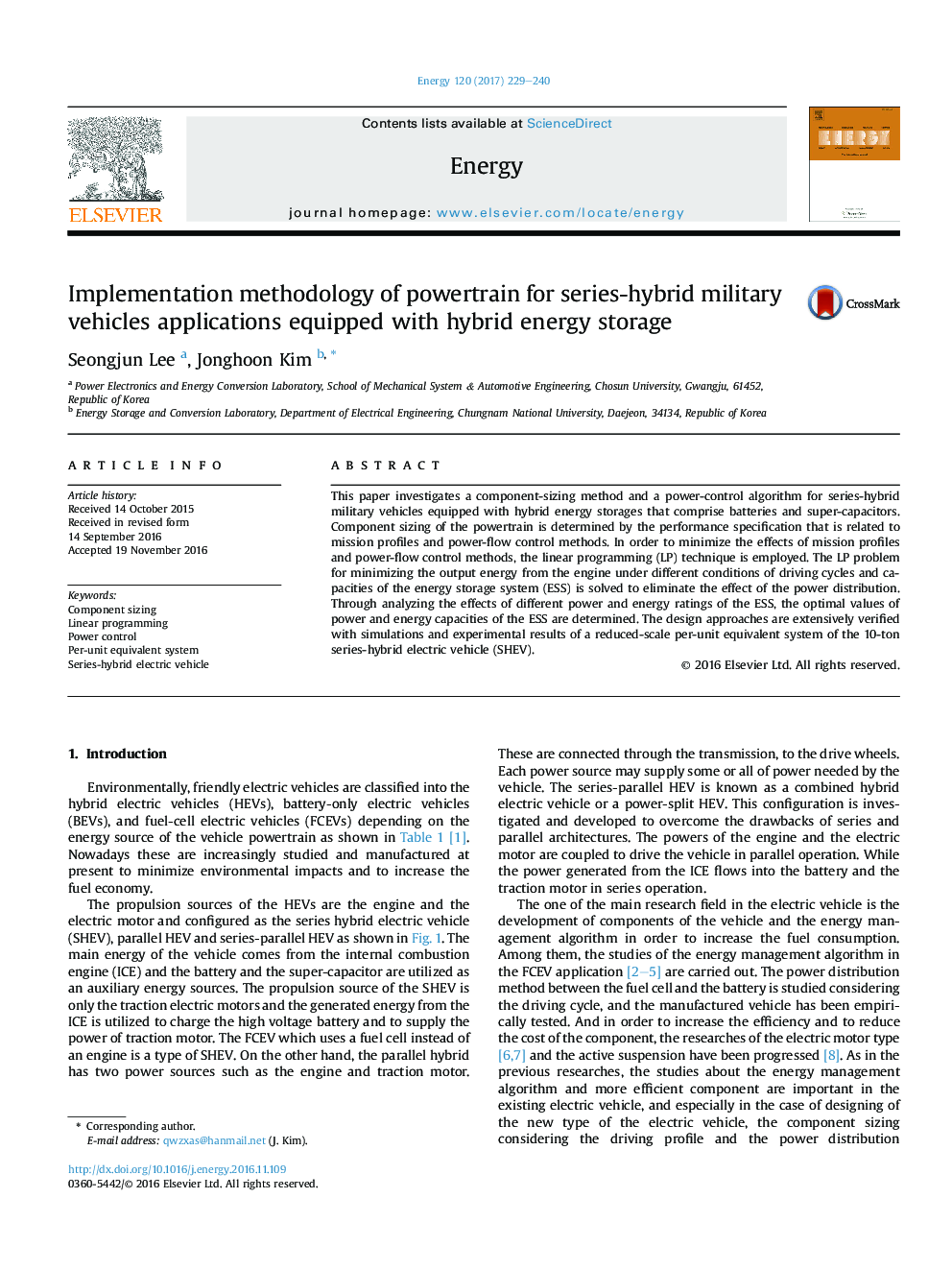| Article ID | Journal | Published Year | Pages | File Type |
|---|---|---|---|---|
| 5476160 | Energy | 2017 | 12 Pages |
Abstract
This paper investigates a component-sizing method and a power-control algorithm for series-hybrid military vehicles equipped with hybrid energy storages that comprise batteries and super-capacitors. Component sizing of the powertrain is determined by the performance specification that is related to mission profiles and power-flow control methods. In order to minimize the effects of mission profiles and power-flow control methods, the linear programming (LP) technique is employed. The LP problem for minimizing the output energy from the engine under different conditions of driving cycles and capacities of the energy storage system (ESS) is solved to eliminate the effect of the power distribution. Through analyzing the effects of different power and energy ratings of the ESS, the optimal values of power and energy capacities of the ESS are determined. The design approaches are extensively verified with simulations and experimental results of a reduced-scale per-unit equivalent system of the 10-ton series-hybrid electric vehicle (SHEV).
Related Topics
Physical Sciences and Engineering
Energy
Energy (General)
Authors
Seongjun Lee, Jonghoon Kim,
